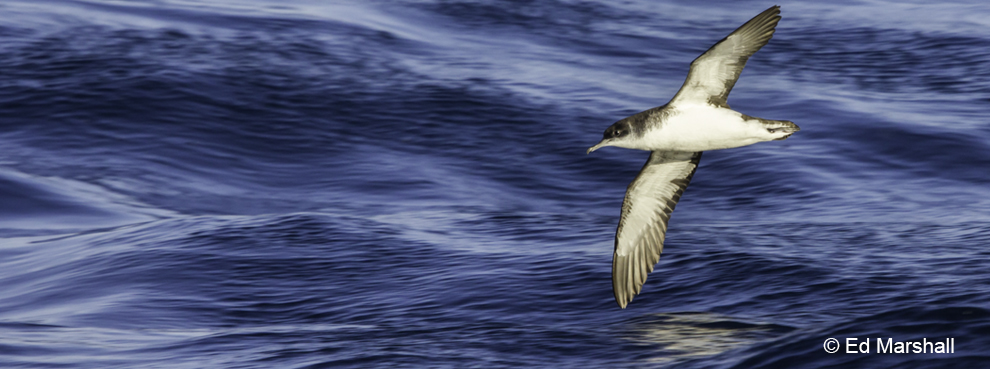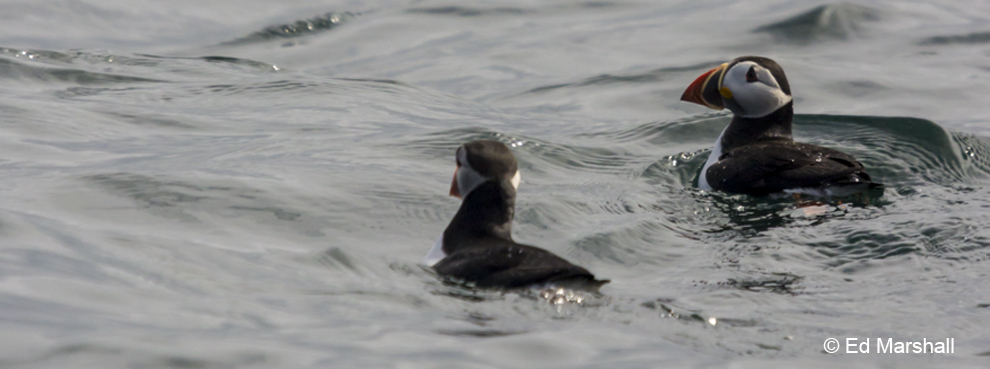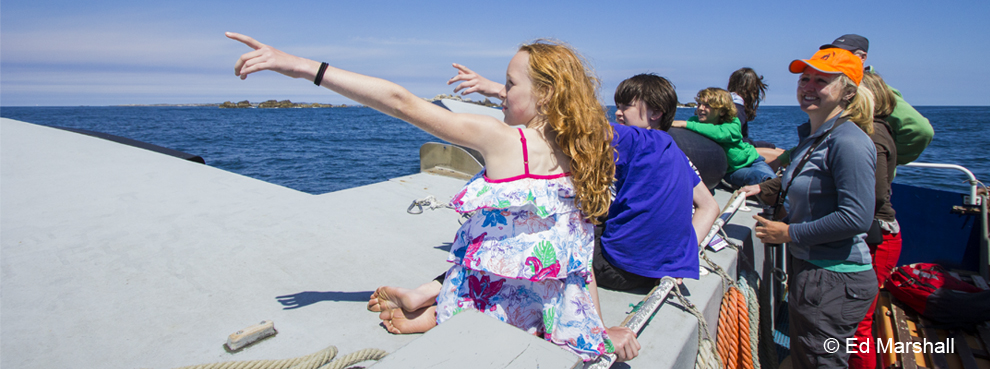Media release
A Mixed Bag for Scilly’s Seabirds
The Isles of Scilly have been confirmed as the most significant seabird colony in southwest England, supporting over 8000 breeding pairs of 13 species of seabird. One of only two breeding sites in England for Manx shearwater and storm petrels [Note one], the islands also support internationally important numbers of lesser black-backed gulls and nationally important numbers of shags.
Last summer a team of RSPB staff and volunteers from the Isles of Scilly Seabird Recovery project surveyed over 60 rocks and islands across the archipelago to count the number of breeding seabirds in this important Special Protection Area [Note two]. The last full survey of all the seabirds across the islands was in 2006 and researchers found that while the numbers of some seabirds has increased, others have not done so well.
Among the winners are Manx shearwaters whose numbers have trebled in the last nine years. Also increasing in number are guillemots and razorbills; whilst puffins are holding their own. Among the species not doing so well are herring and lesser black-backed gulls and shags all of which have suffered losses of over 20% of their breeding populations in the islands since 2006. In line with national trends and following a number of years of poor breeding success the numbers of common terns and kittiwakes in the islands are now perilously low and they may soon be lost as regular nesting species.
Overall the number of seabirds breeding within the Isles of Scilly archipelago has decreased by almost 10% in the last 9 years, and this rapid rate of loss likely represents a wider issue with the health of our oceans.
RSPB Project Research Officer Vickie Heaney said: “We have a great set of data on seabird numbers in Scilly with regular all-island counts completed since 1970. Having coordinated the surveys in 2000 and 2006, it has been a real thrill to carry out these surveys once again. “
Paul St Pierre, Conservation Officer RSPB said: “Monitoring of special places for breeding seabirds such as the Isles of Scilly is the first step in understanding where our conservation effort should be focused for these amazing birds. Whilst there are some land based activities we can carry out to protect seabirds e.g. for burrow nesters such as Manx shearwater and storm petrel, food supply seems to be a common link for a number of the declining birds here and across the UK, so improving our understanding of how and where our seabirds forage will be an important step in helping to conserve the islands seabird heritage.”
Annie Jenkin, Marine Advisor Natural England said: “So much has been achieved for seabirds in the Isles of Scilly but the recent news that puffins have been added to the Red list for birds of conservation concern makes it even more important that we continue to work together to improve breeding success for Scilly seabirds and protect their future.”
Sarah Mason, Chief Executive Isles of Scilly Wildlife Trust said: “We know we can make a difference for these birds by removing predation pressure from non-native brown rats as was done during the successful project on St. Agnes & Gugh. We can also give seabirds more space to breed by creating sanctuaries which have minimal disturbance from people and dogs; islands such as Samson and St Helens are prime examples where this could happen on Scilly.
Jaclyn Pearson, Seabird Recovery Project Manager said: “Thank you to the funders and everyone who supported and volunteered for these seabird surveys. We carried out the rat removal operation on St Agnes and Gugh in the winter of 2013, and on 13thFeruary 2016 we declared rat-free status under international protocol. In the meantime we continue to ask everyone to remain vigilant for rats on St Agnes and Gugh. If anyone thinks they have seen a rat please call the project ‘rat on a rat’ hotline on 01720 422153.”
This is a partnership project between RSPB, Isles of Scilly Wildlife Trust, Isles of Scilly Area of Outstanding Natural Beauty, Natural England and Duchy of Cornwall. The project is funded by a £460,255 grant from LIFE, the EU’s programme for financing key environmental schemes across the continent and a £269,100 grant from the Heritage Lottery Fund.
Ends
For further information and to arrange an interview, please contact:
Tony Whitehead, RSPB Press Officer, 01392 453754, 07872 414365
Notes
- The Isles of Scilly SPA includes many of the 300 or so uninhabited islands and parts of the five inhabited islands that form part of the Isles of Scilly archipelago, situated 40km of the south west tip of mainland Britain. It forms part of the European Union’s Natura 2000 Network which form the best sites in Europe for wildlife.
- Full details of the IOSSRP project can be found at http://www.ios-seabirds.org.uk/
- The islands are home to 13 species of breeding seabirds; approximately 17,000 individuals, including European storm petrels (Hydrobates pelagicus) and Manx shearwaters (Puffinus puffinus) for which the UK holds most of the world population.
- About the Heritage Lottery Fund.Thanks to National Lottery players, we invest money to help people across the UK explore, enjoy and protect the heritage they care about - from the archaeology under our feet to the historic parks and buildings we love, from precious memories and collections to rare wildlife. www.hlf.org.uk @heritagelottery #understandingWW1
















